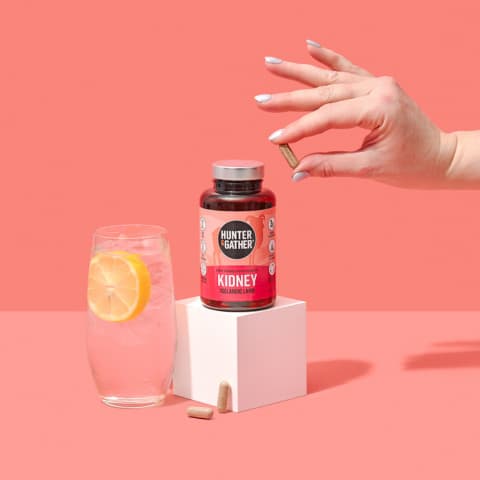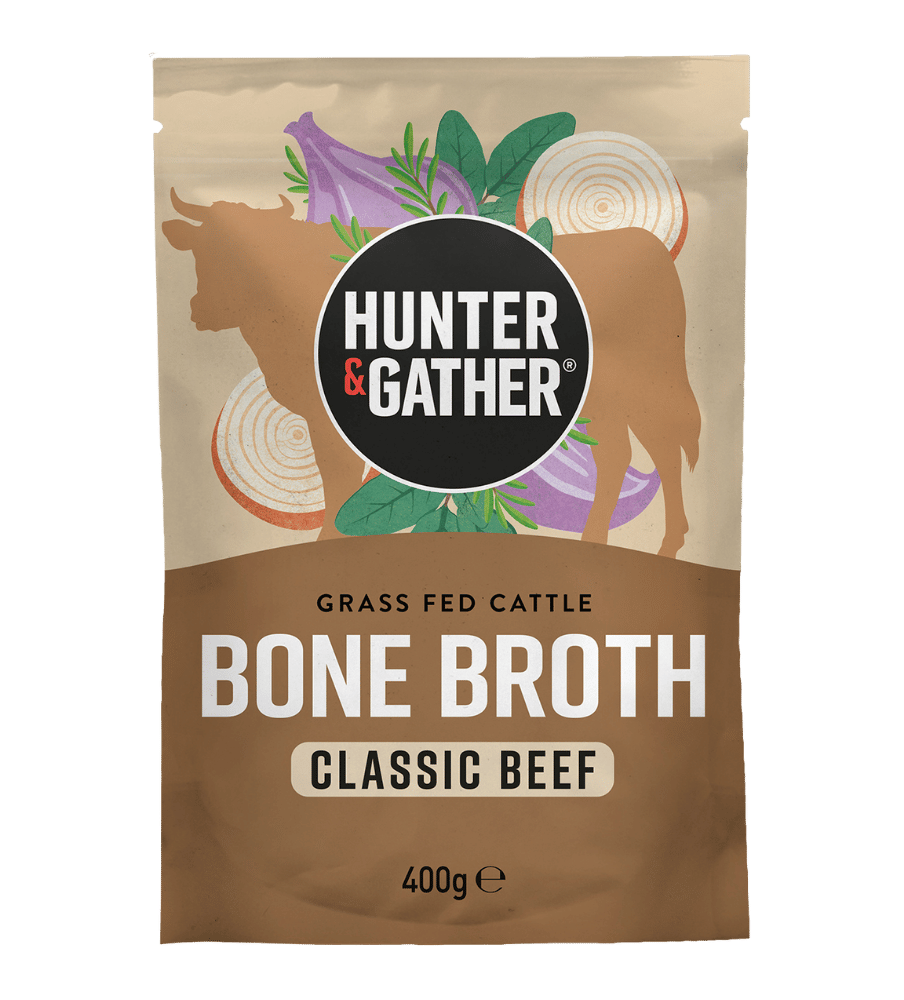Everything you need to know about histamine intolerance - and how Organ Supplements can be a great natural remedy
This article was guest written by our in-house nutritionist, Jade Leighton BA Hons DipION mBANT rCNHC.
What is histamine intolerance exactly?
First things first, histamine is not the enemy. It’s a crucial substance in the body responsible for a whole host of mechanisms, but most commonly known for its role as an inflammatory mediator.
Nevertheless, there are a number of mechanisms that could lead to an overload of histamine in the body. They range from consuming high levels of exogenous histamine either from the environment or from consuming high histamine foods, changes in the gut microbiome, leaky gut syndrome, mould exposure, an underlying infection or virus, chronic stress, oestrogen dominance and more.
Histamine intolerance is not the same as a typical food intolerance, as it is really about 'overload', but has a relatively high prevalence, affecting up to 15% of the UK population.
Causes of Histamine Intolerance
For many people, high histamine (or ‘histamine intolerance’) symptoms tend to arise due to the body’s inadequate ability to break down histamine effectively.
Two key enzymes are responsible for the breakdown of histamine: diamine oxidase (DAO) and histamine N-methyltransferase (HNMT). Hindered breakdown of histamine is often related to inefficiencies with one or both of these enzymes - often it's a combination of genetic and environmental factors driving this.
Symptom-wise, this can lead to a whole host of issues including headaches, allergy symptoms, anxiety, insomnia, digestive issues and irregular menstrual cycles.
When food is a trigger for histamine intolerance, symptoms usually happen within around 30 minutes of consuming the food, but this varies from person to person.
While many people suggest avoiding a number of high-histamine foods to help with histamine intolerance, this is not necessarily a positive long-term solution. So instead we can also be thinking about what we can add to the diet to support imbalances and alleviate histamine intolerance symptoms.
Could you be histamine intolerant?
Signs & symptoms of histamine intolerance
Common signs and symptoms of histamine intolerance can be similar to allergies, but are often more pronounced.
Symptoms vary between individuals but may include one or more of the following:
- Gut symptoms including diarrhoea, bloating, nausea and digestive discomfort
- Skin flushing, rashes and itchiness
- Headaches and neurological problems
- Dizziness
- Heart palpitations
- Anxiety and sleep disturbances, or insomnia
- Congestion and sneezing
- Hormonal imbalances and a disrupted menstrual cycle
- Sore, watery and itchy eyes
Of course, if you suffer with any of these symptoms often - you should always consult a medical professional to rule out any more serious underlying causes.
Getting a histamine intolerance diagnosis
There are some tests for histamine intolerance, however there isn’t a gold standard reliable test and you might never get an official ‘diagnosis’. This is largely because it depends on the mechanism of action that is driving your issues as to which tests might hint at the root cause.
For example, you can look at everything from DAO in the blood, to histamine producers and imbalances in the microbiome, to checking urine for mycotoxins and genetic SNPs on certain histamine pathways.
These tests also have to be done privately with the help of a Functional Doctor or Nutritional Therapist, and you may well have a combination of factors driving your symptoms.
One of the best ways to assess if you have an issue with histamine intolerance without the support of a practitioner is to follow an elimination diet and see if your symptoms subside. This is not a long term fix for histamine intolerance, but it is a good first step to then digging deeper into the possible root cause behind your histamine issues.
What can you do about histamine intolerance?
When supporting histamine issues, you really want to be considering some of the reasons why the body may be producing too much (thinking about those triggers mentioned above) as well as why you may be struggling to break the histamine down.
If you are in a state of stress it’s important to get that under control, as well as assessing your environment for potential mediators that need to be addressed if you want to improve your health. This includes frequent exposure to allergens like pollen and it’s particularly important to get out of any mouldy environments too.
Assessing your diet and supplement regime could also help.
Diet 🍽️
As I mentioned above, if you think you are potentially histamine intolerant, you can try cutting out certain foods and see how you feel. Try an elimination diet which avoids trigger foods for 2-4 weeks.
Common food triggers include:
- Coffee, cocoa and chocolate
- Fermented food and drinks
- Cheese
- Cured meat (especially pork)
- Fresh, canned and processed fish
- Peanuts and tree nuts
- Some fruit and veg - tomatoes, broad beans, aubergine, spinach, oranges, bananas, pineapple, strawberries and grapes
Monitor your diet with a food diary and note down any symptom flare ups to help identify which foods may be causing them.
Over time, this will build a bigger picture of which foods trigger your symptoms, so that you can avoid them and better manage your intolerance.
Remember though - you can reintroduce some of these foods later on once you've got your histamine levels under control; it's a personal process and all about trial and error!
Supplements 💊
If you are concerned about histamine intolerance or want to take a proactive approach to supporting yourself and alleviating symptoms, you could also consider taking a supplement. Depending on the underlying factors, supplements can be an effective natural remedy for histamine intolerance.
For certain people, taking a supplement that contains DAO (the main enzyme that breaks down histamine in the body) can help to top up your own levels, so that you can break histamine from food down more effectively.
This is where the consumption of animal kidneys or kidney supplements may come in. They can potentially be beneficial for individuals with histamine intolerance for a few reasons:
-
They are a natural source of DAO: Animal kidneys naturally contain DAO. It is thought that consuming this exogenous source of DAO helps to break down histamine present in the gut from sources such as food, lowering the accumulation of histamine. Some studies (mainly in vitro) using pig kidney supplements have shown some promising results.
-
They are a good source of copper and zinc: These minerals play a role in the activation of DAO, helping it to effectively degrade histamine, and preventing excess build-up in the body.
-
They are rich in vitamins B12 and B2: These are considered to be indirect cofactors of HMNT enzyme function, as they are necessary for the production of S-adenosylmethionine (SAM) which is the decisive cofactor for HMNT.
Whether or not you will get enough DAO (or the cofactor micronutrients from the recommended dose of these capsules) to therapeutically mitigate your histamine intolerance symptoms is not something that we can determine, as this is likely to be very specific to the individual.
Hunter & Gather Grass Fed Kidney Supplements for Histamine Support 💊
There is definitely evidence to suggest the benefits of consuming animal kidneys and/or kidney supplements in supporting symptoms of histamine intolerance. Grass Fed kidney is an amazing natural source of DAO.
Hunter & Gather Grass Fed Kidney Supplements are made with 100% Grass Fed, wild roaming lamb kidney, providing an incredibly bioavailable source of natural DAO. They're also rich in Vitamin B6, which has been shown to support DAO activity and help alleviate histamine intolerance symptoms.
As well as being free from hormones, fillers and antibiotics (commonly found in other kidney supplements) - each batch of these supplements is lab tested for purity and to ensure that every capsule is of the highest quality.
Hunter & Gather freeze dry and lock in all the benefits of DAO rich lamb kidney, so that you can simply take 6 capsules per day to enjoy natural histamine support - as well as the wider benefits of organ meat nutrition.
💊 Hunter & Gather 100% Kidney Raw Food Supplement
Our recommendation is that you take a holistic approach to managing histamine intolerance which includes controlling exposure to allergens and high-histamine foods, supporting gut health, managing stress and addressing any underlying imbalances that may contribute to the intolerance, ideally with the help of a practitioner.

References
- https://www.ncbi.nlm.nih.gov/pmc/articles/PMC4604636/
- https://www.ncbi.nlm.nih.gov/pmc/articles/PMC7012958/
- https://academic.oup.com/ajcn/article/85/5/1185/4633007
- https://www.ncbi.nlm.nih.gov/pmc/articles/PMC6859183/
- https://www.ncbi.nlm.nih.gov/pmc/articles/PMC5161029/#:~:text=Flushing%20is%20a%20subjective%20sensation,and%20upper%20torso%20(1).
- https://www.allergyuk.org/resources/histamine-intolerance/?gclid=CjwKCAjwpuajBhBpEiwA_ZtfhcY72xLw6LGwk_KsnxIMTrFkvCZ-coHF8C8fTDxHjiYGWiyPnFfRnhoCgicQAvD_BwE
All information provided on our website and within our articles is simply information, opinion, anecdotal thoughts and experiences to provide you with the tools to thrive.
It is not intended to treat or diagnose symptoms and is definitely not intended to be misconstrued for medical advice. We always advise you seek the advice of a trained professional when implementing any changes to your lifestyle and dietary habits.
We do however recommend seeking the services of a trained professional who questions the conventional wisdom to enable you to become the best version of yourself.
















